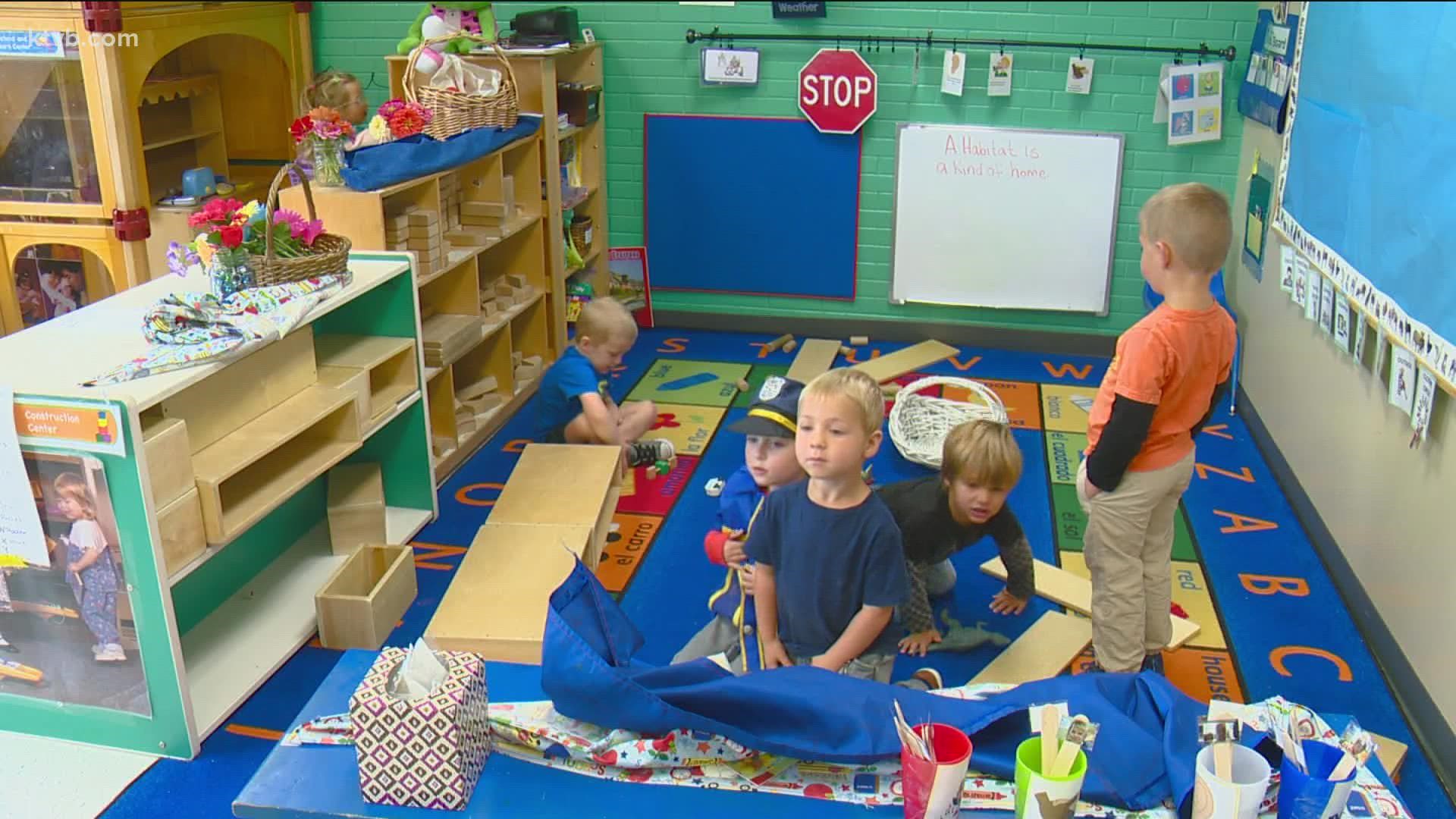BOISE, Idaho — Idaho Governor Brad Little gave a preview of his fourth State of the State address Friday, where he spoke on the housing crisis, the childcare worker shortage, vaccine mandates and more.
One topic Little mentioned that got lawmakers around the Gem State talking was funding for childhood education, specifically all-day kindergarten programs.
"We're going to work on early childhood [education] and kindergarten is a big part of that," Little said.
Little told members of the media Friday he believes it will be addressed in "some way, shape or form" in the upcoming 2022 legislative session.
For years, lawmakers on both sides of the senate and house have tried to pass a bill for state funding on all-day, optional kindergarten programs. Currently, Idaho only funds half-day programs.
Full-day kindergarten programs vary by district. Dozens have passed property tax levies to fund all-day programs, while others offer optional all-day learning programs for which participating families must pay monthly tuition.
However, recent conversations have some lawmakers feeling hopeful headed in the next legislative session.
"We're excited the governor is focused on this, we've known this has been his focus," District 29 Representative James Ruchti (D) said.
Ruchti was part of Friday's question and answer panel following the Governor's remarks. He told KTVB Friday Idaho Democrats have been pushing a bill that supports this funding for years. Ruchti added they are staying hopeful and plan to be in full support of any bills introduced on the topic.
"We often talk about - in the legislature talk - about it as, 'a bill's time has just come.' I do think that about this all-day kindergarten bill," Ruchti said. "The research is undeniable that children who participate in this programs are better prepared for their education career."
Ruchti said a lot of conversations regarding what to do with the $1.6 billion budget surplus will take place during this upcoming session. He added childhood education and all-day kindergarten funding will be at the top of the list.
"We have about $220 million worth of supplemental levies around the state," Ruchti said. "Those are communities who have to pass additional tax money in order to bring their schools to a place that provides the type of education they want for their communities. We could take some of that money, put it into education in the state and it would reduce the property tax burden on local taxpayers."
While some have high expectations on a proposed bill, other lawmakers said they would like to have more conversations.
"I'll be looking at the data, not only academic data but behavioral data," District 30 Representative Wendy Horman said.
Horman currently acts as a budget writer on the Joint Finance Appropriation Committee, where she primarily works on public education budgets. She said she is willing to have an open mind, but has various concerns, such as how districts test and measure different-aged children in kindergarten.
"I've always disliked that we count a kindergartner who turned five the day before, tested and measured against the same test standards measured against the kindergartner who is turning six that day in kindergarten," Horman said. "It's completely and developmentally normal for them to score differently on that test."
Horman is also skeptical of the benefits all-day programs have on a child's educational career. She cites new research from Bluum, an Idaho educational non-profit, which showed students who were enrolled in all-day kindergarten compared to those not in all-day were around the same for preparedness by the time they were in second grade. Horman added research in that regard has been mixed.
"If the difference fades out two grades later, is that really the best use of money? You know, we will have that conversation," Horman said.
Horman also has concerns when it comes to sustainability and relying on the budget surplus, money courtesy of the federal COVID-19 relief funds.
"You don't want to invest in programs that you can't sustain over time," Horman said.
Lawmakers expect funding for optional, all-day kindergarten to be roughly between $42 million to $50 million.
Gov. Little is expected to speak more on all-kindergarten funding and the 2022-2023 budget proposal at his State of the State Address Monday.
Watch more Local News:
See the latest news from around the Treasure Valley and the Gem State in our YouTube playlist:

